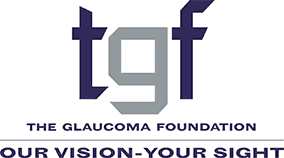Summary
Dr. Steven Zhang discusses preservative-free glaucoma eye drops.
Question answered by:

Chief Medical Officer, Thea Pharma, Inc.
In the past decade, awareness has gradually increased regarding the high prevalence of ocular surface disease among glaucoma patients, particularly dry eye disease, which is linked to the preservatives in glaucoma drops.
Currently, approximately 80% of glaucoma eye drops on the US market contain preservatives. The most commonly used preservative is benzalkonium chloride (BAK), found in concentrations ranging from 0.003%-0.02%. The effects of BAK have been well studied, and it is known to cause eye irritation and inflammation, which could lead to the disruption of tear film production, cell and tissue damage, and result in ocular surface disease such as dry eye. And ironically, many artificial tears available for the treatment of dry eye disease in the US still contain preservatives.
We acknowledge that preservatives are necessary to maintain the sterility of certain eye drops. However, for the treatment of chronic diseases like glaucoma, it’s preferable to avoid exposing patients’ eyes to preservatives, especially BAK. The longer and more frequently preservative-containing eye drops are used, or when multiple preserved eye drops are used, the more susceptible patients become to ocular surface disease. Over time, BAK harms the cells that help lubricate the surface of the eyes and the sensory nerves in ocular surface tissues.
In Europe, the movement towards utilizing preservative-free glaucoma eye drops began earlier and it’s widely recognized. For example, in Denmark, it’s illegal to switch to a generic version of an eye drop containing BAK when a patient is prescribed a brand-name eye drop that does not contain BAK. Differences in regulatory and pricing structures also exist resulting in more preservative-free glaucoma medications in Europe than in the U.S.
While we lag behind Europe’s acceptance, we are now creating greater awareness and educating patients and doctors about the negative impact that all preservatives can have on the surface of the eye, as well as on a patient’s health and quality of life.
Thea has a long legacy in developing preservative-free eye medication worldwide, including not just glaucoma drops but also artificial tears. The Glaucoma Foundation is playing an important role in this effort as a founding member of the Preservative Freedom Coalition, which comprises stakeholders from patient advocacy groups, industry, and professional organizations who share a common goal of improving patient outcomes and ensuring access to safe and effective preservative-free treatment options.
